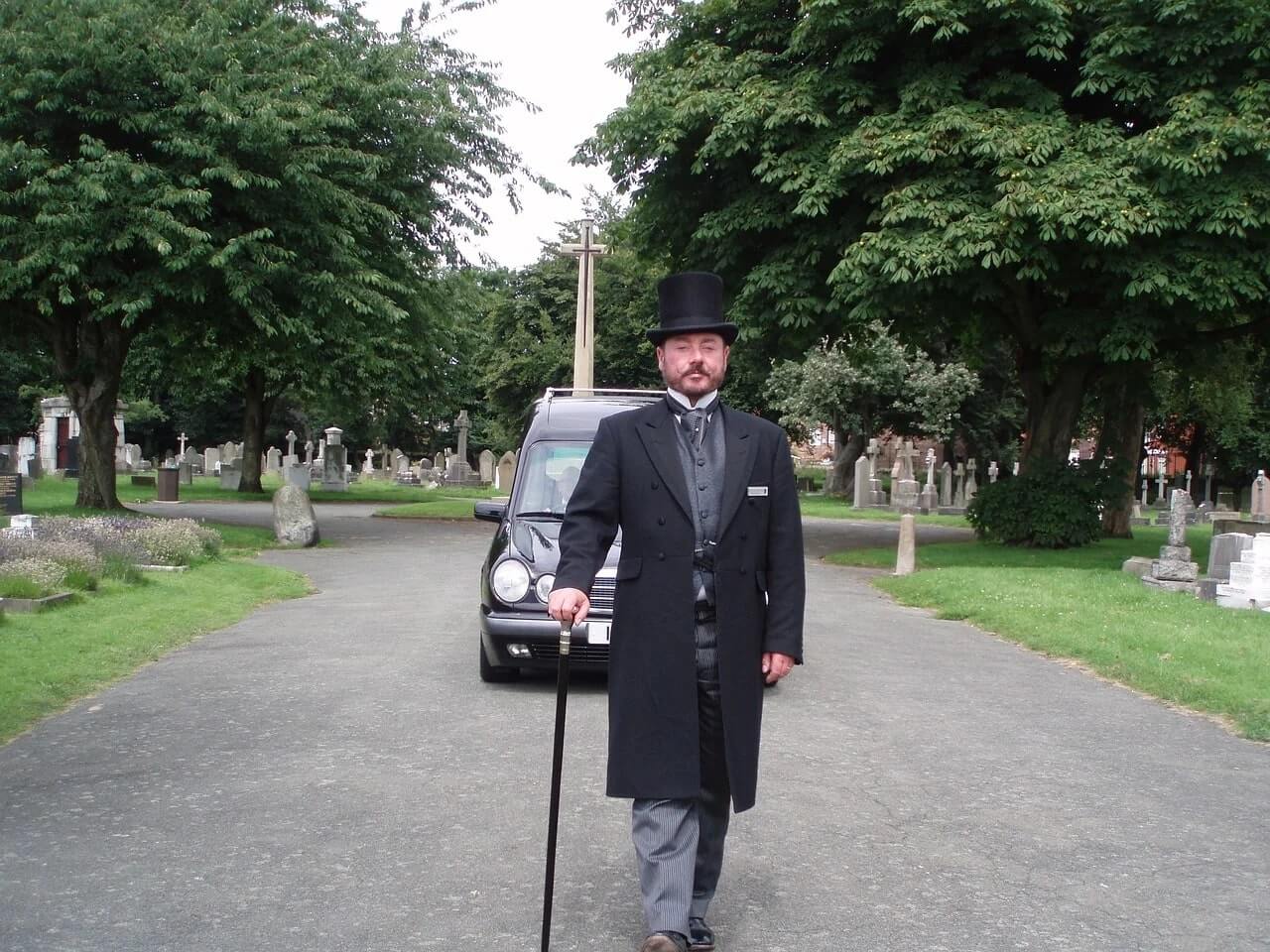
Losing a loved one is the hardest thing that anybody ever experiences, but starting a funeral home business will allow you to make things a little easier for the mourning family by ensuring that their dearly departed receives the send-off that they deserve.
The job is emotionally and financially rewarding, but only if you are supported by a world-class business model. This simple guide will discuss the key considerations, including but not limited to;
- The legal requirements for starting a funeral home business,
- Funeral home startup cost and organisational requirements,
- Deciding what services to offer from your funeral home,
- Market trends and the state of the funeral parlour industry,
- Selecting the best business model for you and your clients.
How to Start a Funeral Home: The Legal Requirements

Before you can consider the services or the funeral home startup cost, you must first familiarise yourself with the legalities. It is a particularly important issue right now as both the FCA (Financial Conduct Authority) and CMA (Competition and Markets Authority) have implemented changes that are set to commence within the next year.
The FCA released a 309-page policy update at the start of July 2021, which will come into effect a year later in July 2022. Funeral directors and parlours now fall under the category of ‘intermediaries that sell funeral plans’ and can prepare for the change by applying for their authorisation ASAP. Further steps include reviewing the Policy Statement and reading the funeral director handbook.
Meanwhile, the CMA changes came into effect in September 2022. All funeral businesses must comply with the standards set out in the regulations. Some of the most important issues include having a standardised price list available on the company website and ceasing all arrangements with third-party providers in the sector that could be viewed as inducements. The full list of requirements can be viewed here.
Meeting the legal requirements surrounding the industry will help you avoid unnecessary delays or repercussions when starting a funeral home business. However, you will also need to comply with the general regulations of registering a UK business. Likewise, you’ll need public liability insurance. Once those situations are under control, you will be able to launch your funeral director business with confidence and a clear mind.
Researching the Market, Competitors, and Trends of the Funeral Director Industry

The UK population currently stands at over 68 million. As such, there is a huge market to keep funeral directors busy. When considering how to start a funeral business, though, you must ensure that your plans will enable families to embrace the latest and greatest services and products. The only way to achieve this is through research.
Technology has evolved while mindsets have consciously changed too. Throughout the pandemic, video services became a necessity. However, with loved ones spread out across the globe, this is now an increasingly popular add-on service. Meanwhile, a growing desire to adopt eco-friendly practices has seen greener coffins, water cremations, and woodland burials all grow in popularity.
Cremations are by far the most common choice in the UK but direct cremations (also known as simple cremations) are quickly becoming the preferred route. Offering this service will allow your funeral parlour to provide a budget-friendly option that can be tailored to better reflect the individual’s beliefs. This guide will provide further detail.
Understanding the trends is one thing, but it’s also necessary to know the competition. Dignity and the Co-Op are the biggest names in the industry. Taking note of issues like Co-Op’s price promise will help you decide how to start a funeral home that can attract the biggest audience When researching smaller local funeral homes, you should consider their USPs (family-owned, long history, aimed at a specific audience, etc.) as this will help you spot a gap in the market.
If you want to know how to start a funeral parlour that can compete, you should also focus on the personal care and service. This is an emotional, stressful, and confusing time for families. Providing clear communication and a simple process can make all the difference. Likewise, helping clients with issues like insurance claims will allow them to focus on grieving as a family and working with your business to ensure that the service is everything that the dearly departed would’ve wanted.
You will also need to consider the demographics in your local funeral home. Knowing the religious and cultural backgrounds and financial statuses, along with any local traditions, will guide you to better solutions.
Decide Which Services to Offer and Price Your Services

When looking at how to start a funeral home, you will need to decide the services offered and then price them accordingly. They will need to be competitive with what’s already on the market while also allowing you to cope with the costs of starting the business.
As per eHow, the premises alone can cost an average of £3,250 per month. By the time you’ve added the equipment, licences, vehicles, and marketing costs, you can expect to spend a six-figure fee in the first year even if there aren’t that many bookings. That’s before you’ve considered any staff costs - you may need a manager, embalmer, assistant, driver, and more.
The average cost of a funeral is around £4,000, though. So, you will still have the scope for a good ROI, as long as the right services are used. You’ll want to consider the following;
- Body removals,
- Body preparations (hygienic treatment, cosmetology, embalming).
- Body presentations,
- Coffin suppliers and any internal furniture fittings and linings,
- Hearse or limousine hire and drivers,
- Pallbearers and funeral ceremony officials,
- Headstone and/or urn services,
- Service organisations (flowers, doves, hymn sheets, etc.)
- Insurance processing,
- Talking to medical services and/or providing press details.
The pricing will be dictated by a wide range of factors, such as material choices. Ultimately, though, the price will reflect the amount of work required and the amount of preparation time given.
If you are unsure whether to invest in permanent infrastructure, you might want to consider leasing equipment. From temporary cold rooms to limousines there are many parts of your expenditure which you can rent to grow from 3rd parties and expand your business in this way without upfront expenditure.
Consider Buying an Existing Business

As a prospective funeral home director, putting yourself in the client’s mind is crucial for success. Planning a funeral for a lost loved one is not a situation where many people are willing to take risks. When starting a funeral parlour, establishing a sense of trust is often the hardest challenge. If an existing funeral home director is looking to retire, buying their brand could help you leverage success from their history could potentially work wonders - although it’s certainly not the best option for everyone.
By the time you have researched the funeral home startup cost, you should be far better positioned to determine whether the acquisition of an existing business may be better. As well as the initial outlay, you should consider the benefits of having an existing client base. Conversely, though, if the company you’re buying has a bad reputation, that won’t help.
If you decide that acquisition is the way to go, this guide to buying a funeral home will help you complete the process. Alternatively, you could reach out to a national funeral director to propose the concept of starting a franchised branch.
Conclusion
Starting a funeral home isn’t cheap or easy. As such, you must enter the process with open eyes regarding the funding requirements, legal requirements, and market trends. When you do, though, the opportunities to help families through their most difficult times while simultaneously generating a good level of revenue will be huge.

Comments powered by Talkyard.